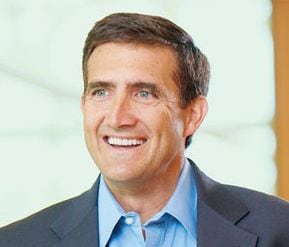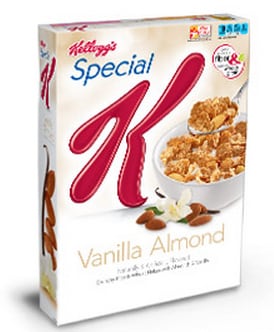Speaking on Kellogg’s first quarter (2014) earnings call on Thursday, Kellogg CEO John Bryant said: “In terms of where the distribution losses have occurred for Kashi, quite frankly, there have been some retailers that are more mainstream in orientation that probably took a little bit more Kashi than they could sustain in that sort of outlet...
"[But] we're still seeing very good distribution in the primary stores where the natural organic shopper goes to shop."
He added: “Long term, Kashi is a very strong business. We just need to get it back on track. Ultimately, we need to get more new innovation to the marketplace.”
It's too early to say there's a big impact from GMO-free

As for what this innovation might look like, he said: “We’re bringing out new food that's more in line with the progressive nutrition that people are looking for from brands like Kashi. And so you're seeing GMO-free type SKUs come into the market now, as well as longer term, some innovation to ensure that we are in the area of pioneering health.”
Asked about the impact of recent non-GMO initiatives at Kashi - which says that more than half of its products [by weight] will be Non-GMO Project Verified by the end of 2015 - he said: “It's too early to say there's a big impact from GMO-free…
"We do have organic SKUs within Kashi and they've been doing well. So I think there's reason to believe in there.”
Special K dieting message is not resonating with consumers as well as it used to
The other big brand with “specific issues” singled out by Bryant in the call was Special K.
Asked by an analyst why the typical New Year marketing push behind the brand didn’t work as well this year, he said:

“Certainly, the resolution event earlier this year was not as effective as we would have liked… We used to call them the 2-week challenge. It's become a challenge, it's become something difficult to do."
We need to continue to move the brand to a more positive footing
He added: “It's not resonating with consumers as well and so we need to continue to move the brand to a more positive footing of great food that helps you live your life to the fullest and manage your weight as opposed to more of a negative orientation.
“And quite frankly, that's a challenge not just in the US; it's a global challenge on Special K. If you look around the world where the weakness is in some of our other cereal business, it is a Special K discussion. And so as we look at our Special K programs globally, we are working on different programs around the world.”
A disappointing start to the year
Total sales in the US Morning Foods segment dipped 5.5%, making for “a disappointing start to the year”, he said, although Raisin Bran and Raisin Bran Crunch had both performed well: “For 2014, we expect category consumption to continue to decline, but at a moderating rate.”
However, Kellogg is working hard on category-building programs to encourage consumers to look again at cereal, which they insist is not in a state of terminal decline, despite the fact that US consumption has dropped about 1% every year for the last decade.
The programs stress the following messages, said Bryant:
1 - Cereal and milk = protein: “It's actually a surprise to consumers that when you look at the protein that's in, say, a bowl of Mini-Wheats and milk, that's there's as much protein there as in many yogurts.”
2 - Cereal tastes great with almond/soy/coconut milk: “There is a little bit of a trend against milk out there, so we also activate programs with the soymilk suppliers and so on and other alternative ways with which people consume cereal.”
3 - Cereal makes a great snack: “We have a cereal snacking program, recognizing that the incidence of snacking on cereal has increased significantly over the last decade, from 20% of all cereal consumed outside the breakfast occasion, to nearly 30%.”
4 - Cereal is simple: “This is food directly from the farm to the table… a cornflake is virtually a corn grit that's been rolled and toasted.”
Elsewhere, there were pockets of success, with sales of meat-free Morningstar Farms products up in the double digits and solid performances from Pringles, the TownHouse brand, Rice Krispies treats, and Nutri-Grain offset by “weakness” in FiberPlus and Special K, he said.
Q1 net income was up 30.5% to $406m, while revenues declined 3% to $3.74bn.
